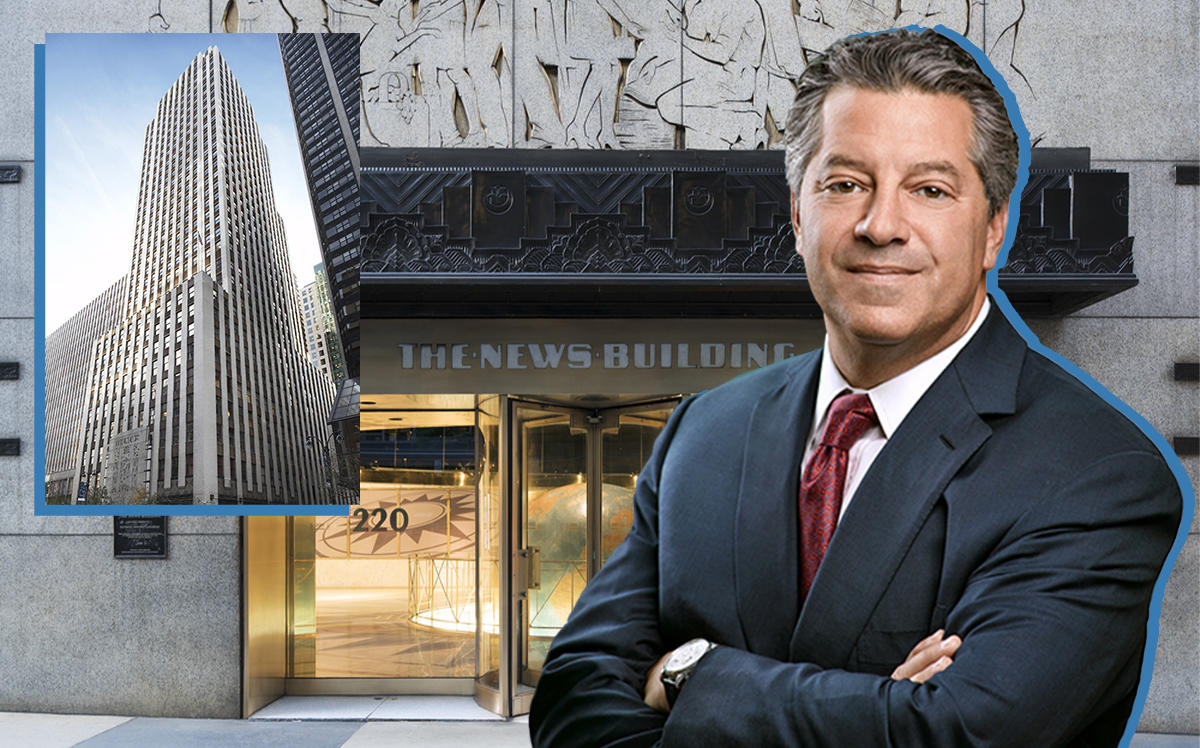Superman fights for truth, justice and the American way. The investor who abandoned a deal to buy the building Clark Kent’s Daily Planet office was modeled after is fighting for his deposit back.
Jacob Chetrit is trying to stop SL Green Realty from pocketing the $35 million deposit the company claims he forfeited when he backed out of buying the Daily News Building, people familiar with the matter told The Real Deal.
Chetrit wrote to the escrow agent holding the deposit to request the funds not be released to Marc Holliday’s SL Green. The next step could be a showdown in court.
A representative for Chetrit did not immediately respond to a request for comment. A spokesperson for SL Green declined to comment.
Chetrit withdrew from an $815 million acquisition of 220 East 42nd Street in late March when financing from Deutsche Bank fell through. It was one of the biggest property deals to disintegrate as the coronavirus pandemic froze the debt markets.
SL Green’s president, Andrew Mathias, said at the time that the company would retain Chetrit’s deposit. But the process is not straightforward. Chetrit can ask a judge for his deposit back or try to coerce SL Green to the negotiating table. At the very least, he can make himself a thorn in the company’s side.
If Chetrit goes to court, he’d have to make a case that SL Green was to blame for the deal’s demise, experts said. It’s not clear what argument Chetrit would make, but in such cases buyers often claim the seller failed to disclose certain maintenance issues with a property, or that problems with the title cropped up.
One notorious tactic buyers use when a deal goes sideways is to claim sellers failed to provide complete documentation on tenants’ leases, known as estoppel certificates. Many regard this as a specious argument because it is only raised when a deal goes awry.
Attorney Jonathan Mechanic of Fried, Frank, Harris, Shriver & Jacobson said buyers often have legitimate reasons to get a deposit back, and other times they are grasping at straws.
“You see challenges sometimes that are successful and sometimes that are not,” he said. “There’s not a claim, by the way, that a pandemic happened. That’s not an excuse for not performing.”
Even if Chetrit has no strong legal argument, he could make himself a nuisance and try to negotiate with SL Green to reclaim a portion of the deposit.
To screen out frivolous requests, courts will sometimes require the buyer to post a bond, said attorney Jay Neveloff of Kramer Levin Naftalis & Frankel.
“Most buyers aren’t prepared to put up a bond on a specious claim. A lot aren’t prepared to put their money where their mouth is,” he explained. “The leverage of a buyer isn’t very strong there.”
The busted deal for the Daily News Building has complicated matters for SL Green, which is selling other assets to make up for the expected proceeds of the sale.
Arguments over deposits seem increasingly common as deals large and small fall apart during the pandemic. Investor David Werner, for example, is wrangling to get back $15 million he put down to buy a multifamily portfolio from All Year Management for $346 million. Brooklyn investor Shulem Herman is seeking the return of $457,500 after failing to close on the purchase of properties in Ridgewood and Bushwick.
Werner is claiming All Year failed to provide information about properties in the portfolio and reduced rents for tenants without his approval. Herman says the seller rushed the closing during the city’s shutdown, then defaulted him.
Contact Rich Bockmann at rb@therealdeal.com or 908-415-5229
